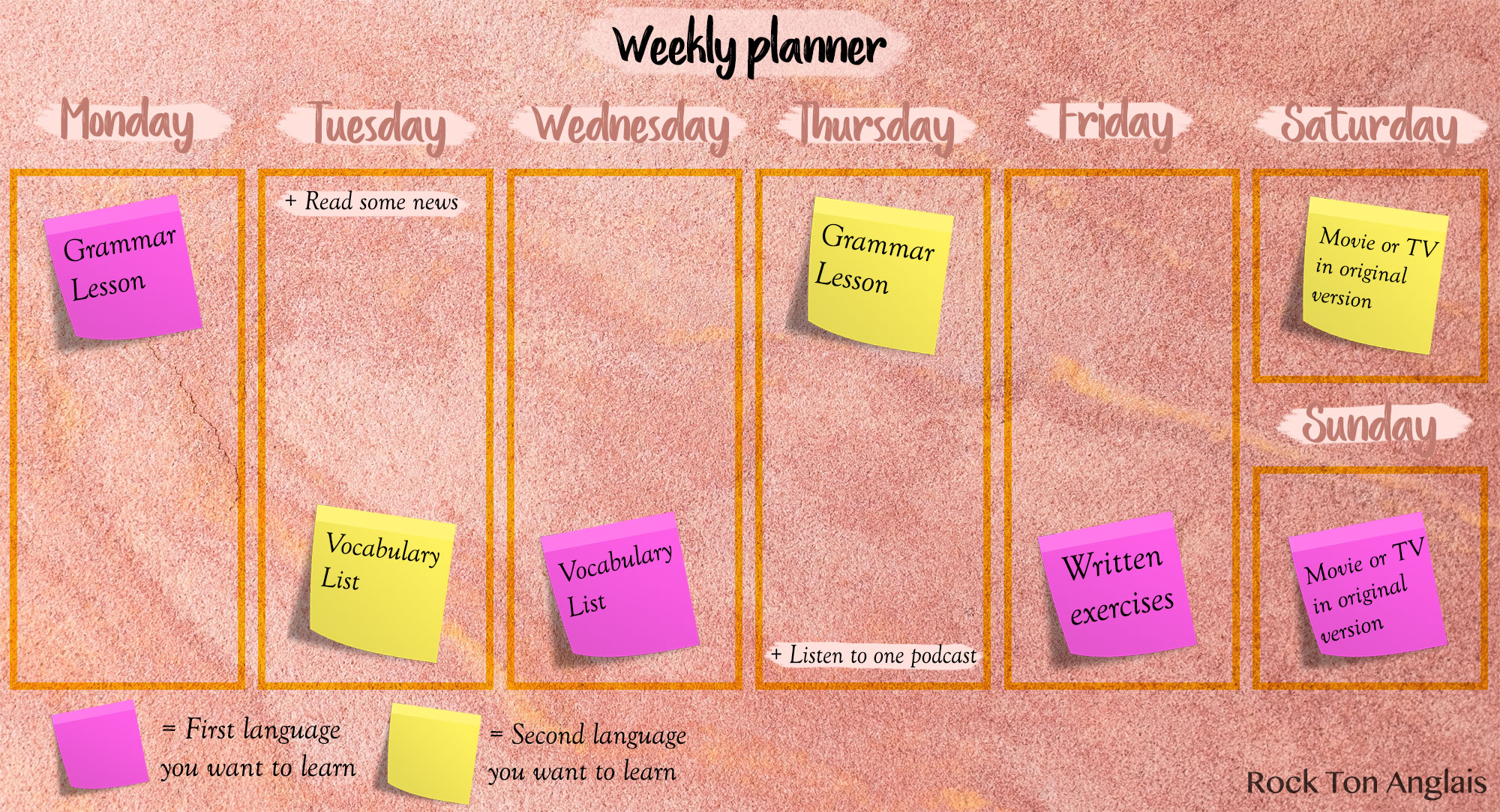We all know that learning a new language is hard work. So the fact that you want to learn two languages at the same time is incredible! Sometimes, people think that it will allow them to gain time. But is it really efficient to learn two languages at the same time? Here are a few tips to become polyglot.
Should You Learn Two Languages at the Same Time?
Some people are brilliant when it comes to multitasking. And sometimes, people end up doing two things poorly instead of handling one thing great. The problem is, you’ll never know in which category you belong to, until you try it. People who have already learned a language, often found a learning method that works for them. It can help them learn two languages at the same time. But if you’re new at language learning, it might even be more difficult for you!
Learning two languages at the same time can be a good way to gain time, but only if you can focus equally on two tasks. In reality, there are good chances that you’ll spend 70% of your study time on one language, and 30% on the second language. Before deciding to multitask your language learning, decide which languages you want to learn and if there is a language you like more than the other.

How to Learn Two Languages at the Same Time?
- Choose two languages that are very similar or very different
- Allow distinct study periods for each language
- Keep the same routine to keep motivated
Choose Languages That Are Similar or Different
There are two ways to look at this challenge. Either you want to make it easier for yourself and choose two languages that look similar (like Spanish and French), or you fear that it will mess with your mind and you’d rather choose two languages that are very different, like Swedish and Japanese. That’s up to you!
You should also try to choose two languages with different difficulty levels. Don’t try to master both Mandarin and Arabic (two of the most difficult languages to learn) at the same time! But maybe you can try to learn Spanish and Russian? And what about a language that you have already started learning? If you’re studying French at an intermediate level, you might add German at a beginner level… It could motivate you to be able to have basic conversations in French, even if you’re struggling with the four German cases.
Stay Organized by Having Distinct Study Periods
If you only study when you feel like it, you might end up focusing more on one language than the other. You will also lose motivation over time! To stay motivated, organize your study sessions : think about what you will learn (grammar, vocabulary, conjugation, oral expression, written expression, etc), at what time you’ll learn it, and in which language! Put everything on a weekly planner and try to stick to it. Try to avoid studying the two languages in the same day! It might be too confusing. Instead, choose during which days you’ll study language number 1, and on which days you’ll learn language number 2.
Once your planner is done, think about your study supplies. Have a notebook for each language and choose color codes. You can even go the extra mile and choose different places to study : the living room for language number 1 and the bedroom for language number 2.

Keep the Same Routine to Keep Track of Your Progress
What is the worst thing that could happen without any routine? Well, you could get disorganized, drop study sessions and realize that you are not making any progress. You might lose your motivation and go from two languages learning to zero. To avoid that, keep the same routine. The fact that you keep track of your study sessions will allow you to stay motivated and will help avoid procrastination. Don’t be afraid to stick to your calendar and add a special time for reading, listening to podcasts, studying on a learning app or watching movies (always in the language you’re learning, of course).
After a few weeks of the same routine, you’ll be able to see some progress or realize that certain things are not working for you. It’s always time to change your learning method or to ask for help. Do some online courses with a private teacher in order to analyze your weaknesses and the things you need to work on…
In summary, yes, it’s possible to learn two languages at the same time. But it’s also twice as much work! You’ll need to be twice more motivated and be very organized. But if you are up to the challenge, we hope this article will help you.











